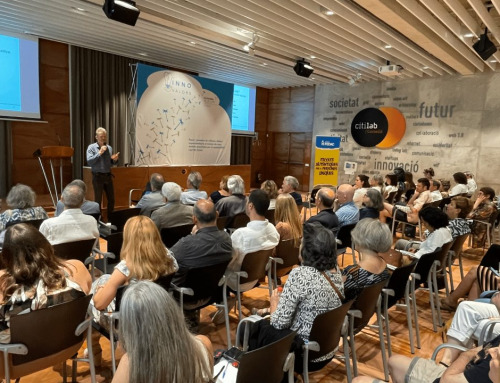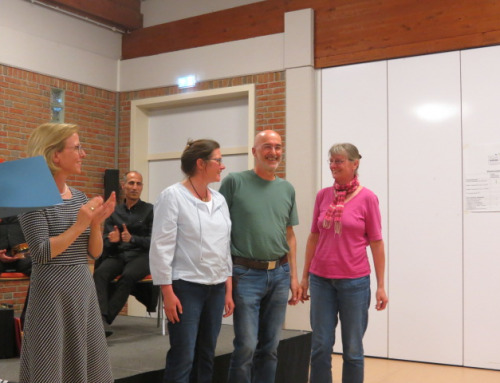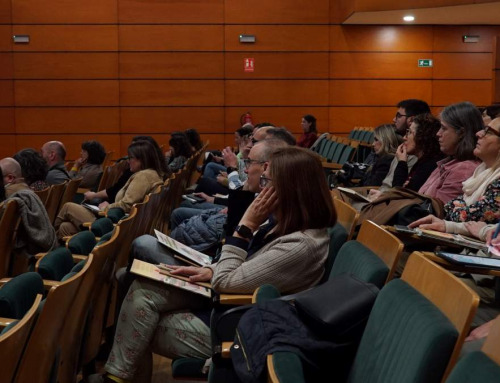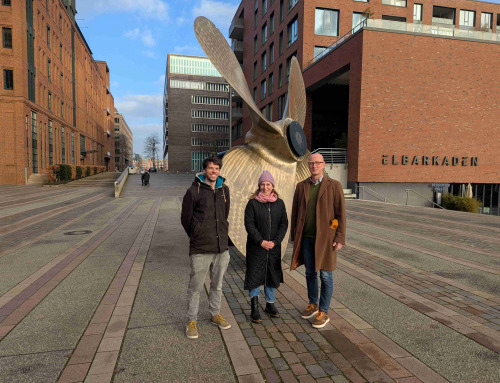
When one ponders the economy, it is usually associated with wealth accumulation or, at the very least, making a decent living. However, many national constitutions explicitly state that the economy should be a tool serving the people and their needs.
“Are people living in a state of perpetual contradiction? In this neoliberal world, is there no room for a genuine conception of economics? Is the public prepared to broaden their perspectives and contemplate this idea? Can they allow their preconceptions to be challenged? Will they join this journey?”
These questions were all posed by ECOnGOOD Girona in a communication campaign titled “10 Ideas That Will Challenge Your Way of Life”, noting that the Economy for the Common Good (ECG) embodies this “authentic” interpretation of economics, developing concrete, feasible proposals to put it into practice.
1. Money should serve, not rule
Money is a brilliant social tool for exchanging goods and services, as well as preserving value. However, its worth lies in its use, not its function. In our current system, money has become an end in itself, detached from its social purpose. The ECG advocates for recovering money’s true role as an intermediary for economic activities that serve people. Economic values should promote the common good and social justice, with money as a tool to achieve these goals. Money should facilitate economic actions, not dictate them.
2. – compete + cooperate
While competition can foster self-improvement, it can become inhumane when it’s a zero-sum game. Research shows cooperation and mutual aid have been vital for human survival. However, economic structures often favour competitive wealth accumulation by the strongest.
The ECG model encourages cooperation in the economy, prioritising consensus for the common good over competitive individualism. This model, based on human social nature, promotes cooperative initiatives where possible.
3. Only economic performance? What about the common good?
Judging a company solely by its profits is misguided, qualitative factors should be considered, such as the company’s purpose, treatment of stakeholders, environmental impact, and management transparency. ECOnGOOD offers a measurement and transparency tool called the Common Good Balance Sheet to assess a company’s overall impact and contributions.
4. Is banking democratic?
Banking is not democratic, as top officials of major financial institutions are appointed, not elected. Democratic municipal banking and Common Good Banking would support projects that benefit the community and advocate for citizen participation in economic management.
5. Unlimited Growth? Right Measure!
Infinite economic growth on a finite planet is simply unsustainable. A more pragmatic approach is an organic perspective of economic forces, championing the appropriate balance founded on ecological sustainability, productive necessity and market viability.
6. The Free Market: It’s a Market, but It’s Not Free
An unregulated market is merely a battlefield of unequal forces. There is a need for fair market regulation focusing on the social function of the economy, proposing rules that benefit all, based on analyses from all social sectors.
7. Without values, economy bears no fruit
In capitalism, material benefits have become ends in themselves, disconnected from ethical values. This is the root of growing inequality and injustice. The economy should serve human dignity, cooperation, environmental sustainability, and democratic transparency.
8. The Bank Always Wins. Guess Who Loses?
Banks wield extraordinary powers in the current economic system. A viable solution to this issue is the establishment of democratic national banks and local municipal banks. This approach aims to restore money to its natural role: serving the basic needs of the populace.
9. The accumulation of capital does not ensure success
Capital accumulation has become an end in itself, divorced from authentic economic objectives. This leads to wealth concentration and heightened poverty indicators. When money is not put at the service of values, it becomes an obstacle to coexistence, and a system that allows and encourages this is contrary to human dignity. That’s why we need alternative models to the current system, such as the ECG, to be able to succeed as a society.
10. Public or Private? Always the Common Good!
The market should be regulated to fulfil its purpose: a place of service where profit is possible, not a place of profits where service might occur. The Common Good Balance Sheet as a moral and legal obligation would enable popular ethical self-regulation of the market.
Visit the original campaign website in Catalan.
Image credits: @hurrahsuhail / unsplash





